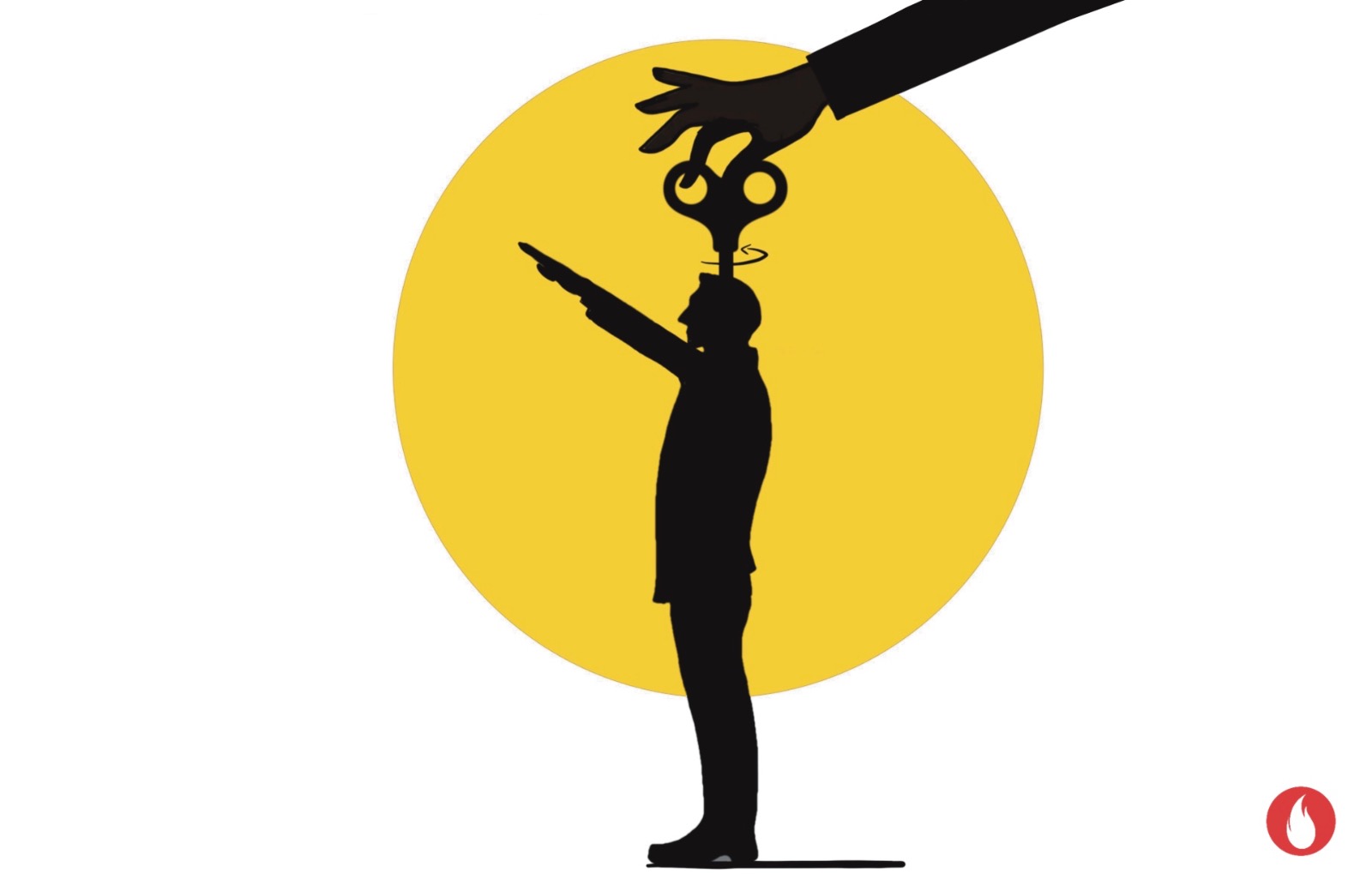
Last week, in an elevator I heard one parent tell another: ‘”The teacher called my son, a very obedient kid”. And she seemed pretty pleased with that. I wondered if that was a good thing. And I landed up with Milgram’s paper titled “The Perils of Obedience”.
The title can give away the drift of what the paper might hold. But you could well be surprised to the extent of the ‘peril’! I am quite familiar with this paper from past readings. But this time around, something more emerged for me. Perhaps it is the current day context or my own stage in life!
Some Context
Adolf Eichmann was a Nazi war criminal who was caught in Argentina. This was 1960. Adolf Eichmann was responsible for killing millions of jews. When confronted in court, Eichmann had a spectacularly boring but very useful defense: he was merely following orders! He was an obedient and loyal government official. In the end, a noose enveloped his neck and his ashes were strewn across the sea. The trial attracted plenty of attention. Including that of Stanley Milgram, a psychologist at Yale. And, a jew whose family was affected by the holocaust.
He set up a study on obedience. He wanted to find how far people would go in obeying instruction, especially when it also involved harming someone else. The whole experiment was controversial especially because of the deception involved.
Design & Outcomes
For purposes of the experiment he hired people who thought they were playing the role of a teacher in an experiment about punishment and memory. He hired actors to play the role of learners and experimenters.
In the experiment, the learner was strapped on to what seemed like an electric chair. The teacher read out a set of word pairs and then proceeded to test the learner’s recall. Everytime the learner gave a wrong answer, the teacher was to administer an electric shock. The teachers were given a shock generating machine with labels like “slight shock”, “moderate shock”, “danger:severe shock”. The final switches were labelled XXX. In
The learner, being an actor, gave wrong answers and the teacher was forced to consider progressively increasing the severity of the electric shocks. Whenever the teacher dithered in giving shocks, the experimenter repeated the following.
1. Please continue
2. The experiment requires that you continue.
3. You must continue.
4. You have no other choice, you must go on.
As the shocks increased, the learner would cry out in pain. The highest severity of the so-called electric shocks were 300 volts and the learner would start banging on the door and beg for the experiments to stop. Upon more shocks, the learner would completely stop responding.
26 of the 40 participants went ahead and delivered over 450 Volt shocks, merely following instructions. The perils of obedience were there for all to see, in a shocking way!
The Perils of Obedience
There are several controversies with this experiment. Deceit, dishonesty are chief amongst them.
While it was all well staged, the fact remained that 65% of the participants in the study went ahead and obeyed orders, their comfort levels notwithstanding.
Human beings, the experiment demonstrated, were capable of inflicting pain on one another. Simply, by following orders. There were examples of people who didn’t go ahead with the orders. Like a lady by the name Gretchen Brandt, who firmly told the experimenter that she wasn’t going ahead. She clearly was in the minority.
Milgram wrote
Stanley Milgram
“This is, perhaps, the most fundamental lesson of our study: ordinary people, simply doing their jobs, and without any particular hostility on their part, can become agents in a terribly destructive process. Moreover, even when the destructive effects of their work become patently clear, and they are asked to carry out actions incompatible with fundamental standards of morality, relatively few people have the resources needed to resist authority “
” The subjects do not derive satisfaction from inflicting pain, but they often like the feeling they get from pleasing the experimenter. They are proud of doing a good job, obeying the experimenter under difficult circumstances “
You may argue that all of that was the 60’s and 70’s and the perils of obedience will be less ominous now. Experiments in 2009 and later all prove that the obedience percentage hovers around 65%. I have been soaking up a lot of stuff about the controversies and more findings about the experiment and Stanely Milgram himself. There is a lot to unpack there.
Titles, dress, material possessions all seem to be good aids to build influence and authority.
The next time someone asks you to obey orders, hope Stanley Milgram’s ‘The Perils of Obedience’ will be on your mind. Drop in a note on what you think. I would love to know. Perhaps we should discuss this more.

Some Changes To The OWL Despatch
I have been writing and putting together The OWL Despatch for a few years now. Typically, one ever fortnight that has a short essay and five interesting reads that I have read the past fortnight. I have also been cross-posting the entire post online. From the previous edition, I am sharing the curated reading lists and other pieces with subscribers while leaving the essay on the web. The subscription remains free. For now :).
If you are yet to subscribe, may I invite you to click on this link please. Besides sharing it with your friends!
Link to subscribe to the OWL Despatch: http://eepurl.com/dtNB3n







